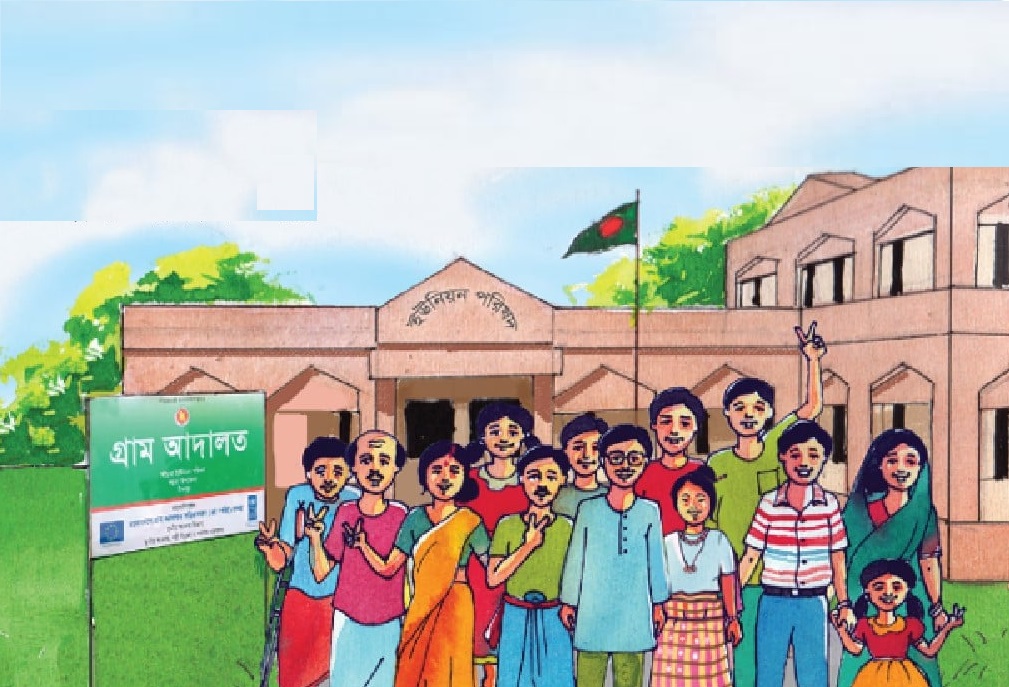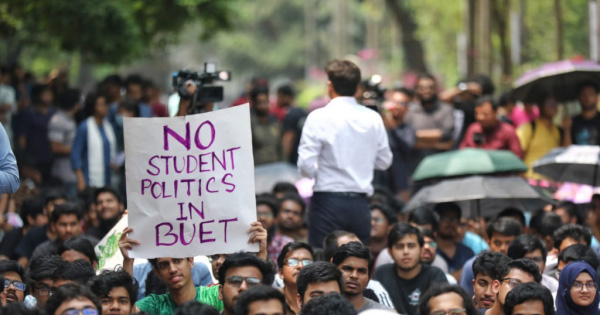The safety of women in Bangladesh, whether in the home or educational institutions, is increasingly under threat, as two recent cases vividly demonstrate. These incidents not only highlight the prevalence of sexual violence but also expose how the country’s justice system and ruling party’s network of influence and nepotism leave victims powerless. From a father seeking justice for his daughter’s assault to a university student being harassed by a ruling-party affiliate, these cases paint a grim picture of how ineffective policing and political protection for perpetrators contribute to a culture of impunity for gender-based violence.
#### Case 1: Justice Denied and Retaliation Faced
In Manikganj, a father who sought justice for the attempted rape of his five-year-old daughter was met with brutality, not by the assailant but by the very law enforcement officers tasked with upholding justice. After his daughter was assaulted by a local Awami League member’s cousin, the father filed a complaint in August. However, no action was taken by the police, despite the gravity of the crime.
When the father visited the police station to follow up, he was assaulted by Assistant Sub-Inspector (ASI) Arif Hossain, who appeared to be acting under the influence of political connections. The assault took place while the ASI kept local Awami League member Mannan Khan on the phone, a clear indication of how local political figures manipulate justice to protect their associates. Rather than arrest the perpetrator, the police targeted the victim’s father, revealing an alarming abuse of power.
It wasn’t until after the incident was publicly reported that ASI Arif Hossain was withdrawn from his post, but this reactive measure is far from true accountability. The mother’s heart-wrenching account of begging for help while police officers ignored her cries only deepens the sense of injustice. Such incidents send a chilling message to survivors and their families: seeking justice could make them victims of retaliation.
#### Case 2: Harassment in Universities, Protected by Power
A similar culture of impunity thrives within Bangladesh’s universities, where political connections often shield wrongdoers. In Dhaka University (DU), a female student faced harassment when a Bangladesh Chhatra League (BCL) leader entered a female washroom in an allegedly drunken state and made obscene gestures toward her. The accused, Tanjin Al Amin, holds a significant position within the ruling party’s student wing, BCL, as the deputy cultural secretary of the Central BCL committee.
Tanjin’s defense was weak at best, claiming he mistakenly entered the female washroom, only to then offer a half-hearted apology. Despite the student’s complaint, which alleged that he was in a semi-nude state and had threatened her with his associates, Tanjin continued to deny the allegations, leaning on his political connections to deflect blame.
This case illustrates the deep-seated problem of political influence on campuses. The BCL’s dominance in student politics often provides cover for members accused of harassment or other misconduct. In a place where women should feel safe and empowered to pursue education, they instead face harassment and threats, often with little hope for justice.
Both cases reflect the pervasive role of nepotism and political favoritism in shielding perpetrators of gender-based violence. In the case of the father in Manikganj, the police’s reluctance to take action against a relative of a local Awami League leader shows how political connections can subvert justice. Similarly, Tanjin Al Amin’s political standing within the BCL likely contributed to the dismissive attitude toward the DU student’s complaint. In both instances, the justice system is weakened by the influence of political power, which protects those with connections rather than the vulnerable. This culture of impunity leaves women and their families in a state of fear and insecurity. In homes, daughters are assaulted and their fathers brutalized for seeking justice. In universities, female students are harassed by politically connected individuals with little consequence. The message is clear: those with the right political backing are untouchable, while victims are silenced, threatened, or ignored.
At the heart of this insecurity is a deeply flawed justice system. Law enforcement, instead of being impartial defenders of the law, often act as enforcers of political will. In Manikganj, the police not only failed to act but actively abused the victim’s family. In Dhaka University, the administration’s response to the student’s complaint has been tepid, with no immediate disciplinary action against the BCL leader. This inertia signals to victims that reporting crimes is futile, especially when the accused are shielded by political connections. The government’s inability to ensure that the justice system operates independently from political influence undermines public trust and emboldens criminals. Political leaders, whether at the local or national level, must be held accountable for using their influence to obstruct justice. Without reform, women will continue to face harassment, violence, and intimidation, knowing that the justice system will fail them.
The current climate in Bangladesh, where political connections override justice, leaves women vulnerable and unsafe. The government must prioritize justice system reform, ensuring that law enforcement and legal institutions operate free from political influence. This includes holding police officers and political leaders accountable when they fail to protect citizens, especially women and children. Universities, too, must take a zero-tolerance approach to harassment, regardless of the perpetrator’s political affiliations. Dhaka University, in particular, must lead the way by enforcing strict disciplinary actions against those who abuse their power. Without strong action, campuses will remain unsafe for female students, who deserve an environment free from harassment and political intimidation.
Conclusion
The cases in Manikganj and Dhaka University are tragic reminders of the deep-rooted issues in Bangladesh’s justice system. Women and children are being left unprotected in their homes and educational institutions, while political nepotism ensures that perpetrators face little consequence. Without meaningful reform, Bangladesh risks entrenching a culture where victims are silenced, and justice is accessible only to those with political connections. The country must act now to restore faith in its justice system and provide the safety and security that every citizen deserves.







